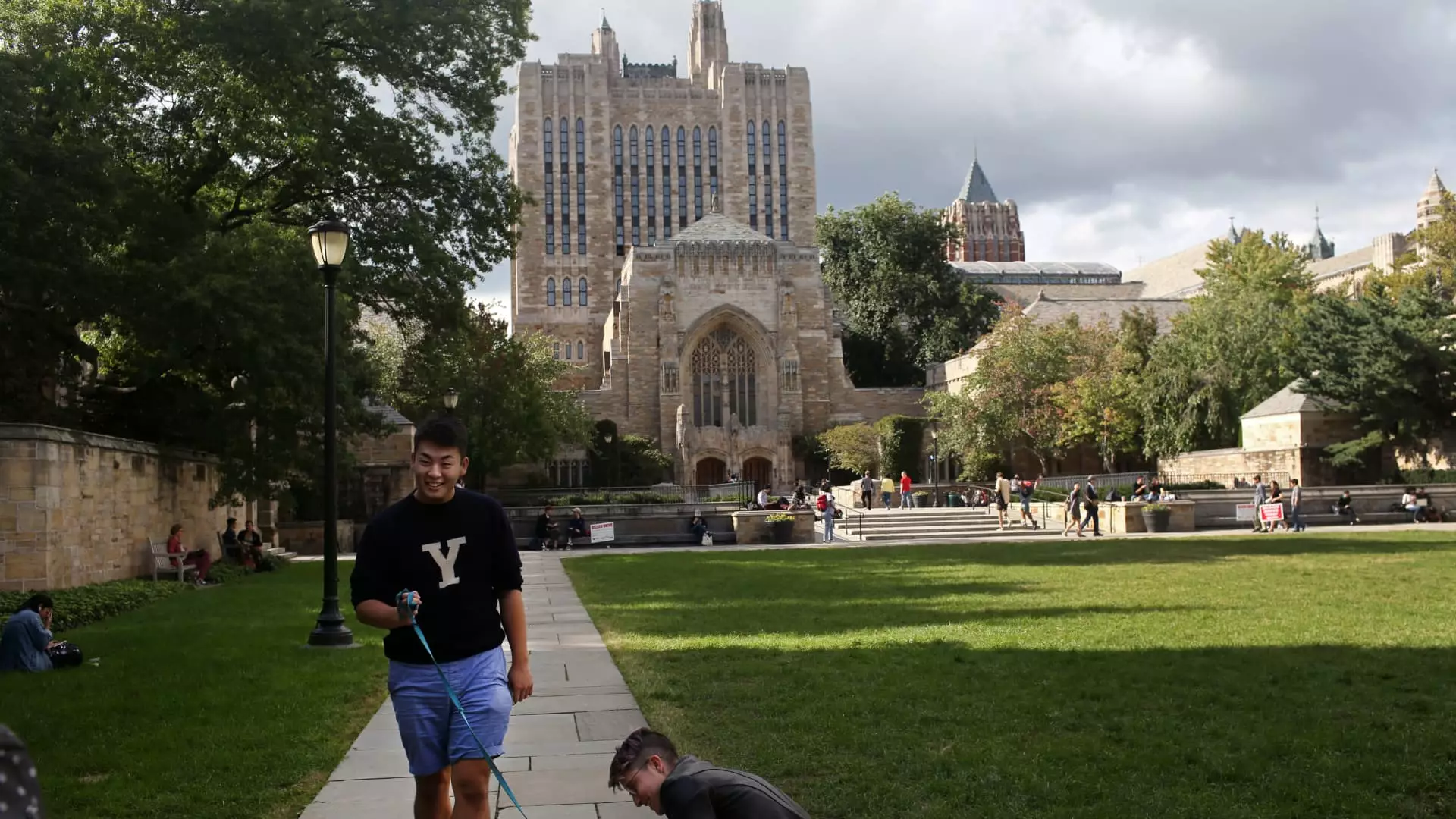In recent years, the landscape of higher education funding has become a battleground of competing interests and misguided policies. The latest legislative move, a sweeping tax and spending package, ostensibly aimed at creating a “more equitable” society, masks deeper issues that threaten the very core of academic institutions. The introduction of a multi-tiered endowment tax—rising as high as 8%—is portrayed by proponents as a means of ensuring fairness, yet in reality, it risks destabilizing the delicate financial ecosystem that sustains the nation’s top universities. These institutions are vital drivers of research, innovation, and cultural growth; penalizing their financial resources under the guise of equity undermines their ability to serve society effectively.
The supposed benefits of taxing large endowments fail to recognize the complex role these funds play in fostering academic excellence. Endowments are not merely piggy banks for university administrators; they are long-term investments that safeguard educational quality during economic downturns and support groundbreaking research that benefits society at large. Elevating the tax rate without addressing underlying structural issues is shortsighted, creating unintended consequences that may cripple the very institutions that push the boundaries of human knowledge.
The Fallacy of Fairness: How Short-Term Gains Obscure Long-Term Damage
The narrative around the new tax insists it will generate hundreds of millions of dollars over a decade—funds that are supposed to be reinvested into public services or aid programs. However, this perspective ignores the strategic responses that universities might deploy to mitigate the tax burden. Faced with increased taxation, universities could respond by raising tuition, reducing financial aid, or cutting research programs, which ultimately hurts students and stifles innovation.
Indeed, schools like Yale have already signaled that the tax could result in hundreds of millions of dollars of additional costs annually. To compensate, they have resorted to austerity measures: hiring freezes, salary caps, and delayed expansion projects. These are not trivial inconveniences; they directly diminish the quality of education and research. When institutions are forced into fiscal austerity, students are the ones who bear the fallout — higher costs, diminished services, and fewer opportunities for upward mobility. The narrative of fairness starts to crumble under the reality that these policies penalize the very institutions that are the backbone of economic and cultural progress.
The Myth of Revenue Neutrality: Why the Intended Benefits Are Illusory
A core flaw in the rationale of increased taxation on endowments is its assumption of revenue neutrality. Policymakers argue that the tax will simply extract wealth without significant consequences. This type of fiscal arithmetic, however, neglects human and institutional responses. Colleges have limited options when faced with rising costs; passing these expenses onto students in the form of higher tuition is the most straightforward recourse. The resulting tuition hikes are not incidental but a predictable outcome that undermines accessibility and equity—precisely the issues the policy claims to address.
This dynamic disproportionately affects low-income and middle-class students, for whom higher tuition and reduced financial aid serve as barriers to higher education. Public attention often overlooks how tax policies favor wealth redistribution through specific channels, yet here, they threaten to marginalize those who need support the most. The supposed beneficiaries of fairer taxation—the broader public—may find their own educational prospects diminished, as colleges tighten their budgets in reaction to tax increases.
The Broader Political Implications: A Fragmented Approach to Education Funding
The policy’s focus on taxing university endowments reveals a broader political failure: a neglect of sustainable, comprehensive solutions to funding higher education. Instead of investing directly in accessible education, policymakers prefer quick-fix revenue streams that overlook the systemic issues of rising college costs and ballooning student debt. This piecemeal approach undermines the social contract that should connect a free or affordable higher education system with societal progress.
By penalizing the wealthiest institutions—many of which serve as research centers and innovation hubs—government policies risk eroding the public trust in higher education. The focus on short-term fiscal gains distracts from the need to develop holistic strategies that address affordability, quality, and inclusivity. Reform should prioritize equitable funding that enables universities to serve all students without resorting to regressive taxes that threaten their operational stability.
The Imperative for Thoughtful Policy Making
In an era where the cost of higher education continues to soar, policymakers have a moral obligation to craft solutions that are both sustainable and equitable. Rushing into policies like increased endowment taxes without considering the long-term consequences is shortsighted and counterproductive. Instead, reforms should aim to diversify revenue streams, improve public funding models, and foster partnerships that make higher education more accessible without penalizing institutions that contribute massively to research and economic growth.
Fundamentally, the future of higher education hinges on recognizing its role as a public good, not a commodity to be taxed and exploited for immediate fiscal gain. If policymakers are truly committed to fairness, they must look beyond punitive measures and embrace strategies that bolster the resilience of our educational institutions—protecting them from short-term fiscal games that threaten long-term societal advancement.

